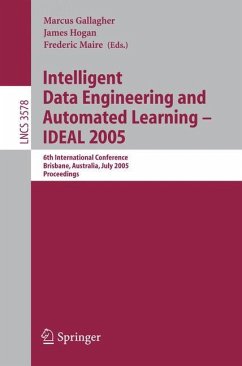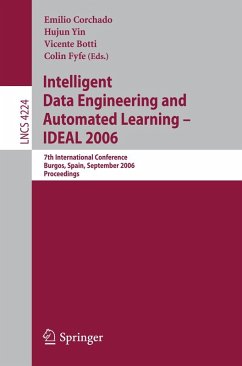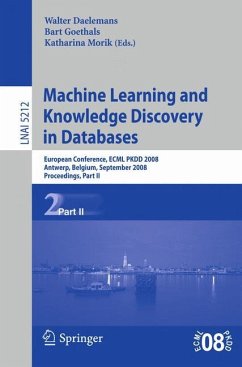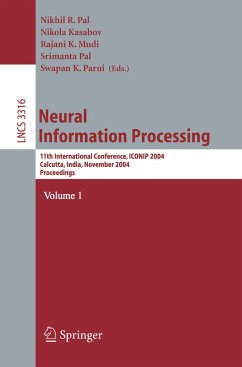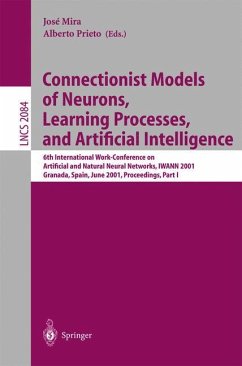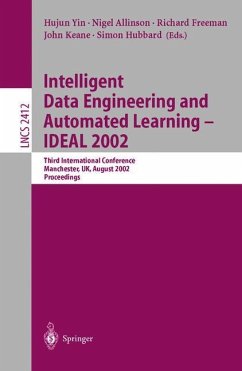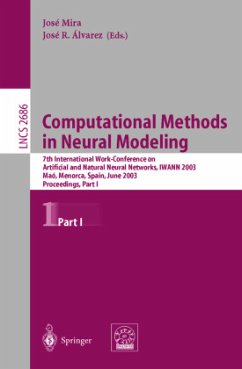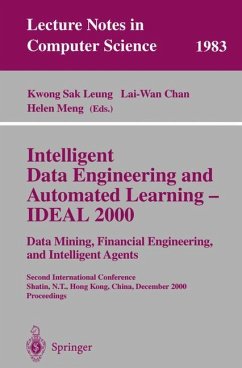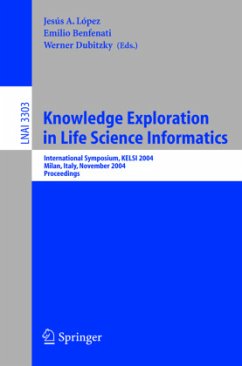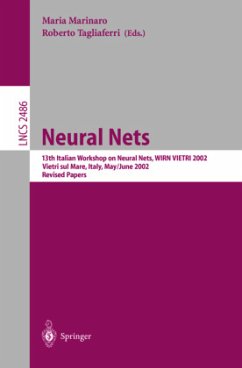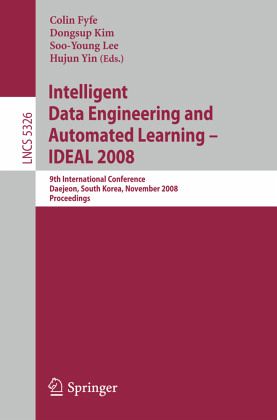
Intelligent Data Engineering and Automated Learning - IDEAL 2008
9th International Conference Daejeon, South Korea, November 2-5, 2008, Proceedings
Herausgegeben: Fyfe, Colin; Kim, Dongsup; Lee, Soo-Young; Yin, Hujun

PAYBACK Punkte
19 °P sammeln!
This book constitutes the refereed proceedings of the 9th International Conference on Intelligent Data Engineering and Automated Learning, IDEAL 2008, held in Daejeon, Korea, in November 2008.
The 56 revised full papers presented together with 10 invited papers were carefully reviewed and selected from numerous submissions for inclusion in the book. The papers are organized in topical sections on learning and information processing, data mining and information management, bioinformatics and neuroinformatics, agents and distributed systems, as well as financial engineering and modeling.
The 56 revised full papers presented together with 10 invited papers were carefully reviewed and selected from numerous submissions for inclusion in the book. The papers are organized in topical sections on learning and information processing, data mining and information management, bioinformatics and neuroinformatics, agents and distributed systems, as well as financial engineering and modeling.
IDEAL 2008 was the ninth IDEAL conference to take place; earlier editions were held in Hong Kong, the UK, Australia and Spain. This was the first time, though hopefully not the last time, that it took place in Daejeon, South Korea, during November 2 5, 2008. As the name suggests, the conference attracts researchers who are involved in either data engineering or learning or, increasingly, both. The former topic involves such aspects as data mining (or intelligent knowledge discovery from databases), infor- tion retrieval systems, data warehousing, speech/image/video processing, and mul- media data analysis. There has been a traditional strand of data engineering at IDEAL conferences which has been based on financial data management such as fraud det- tion, portfolio analysis, prediction and so on. This has more recently been joined by a strand devoted to bioinformatics, particularly neuroinformatics and gene expression analysis. Learning is the other major topic for these conferences and this is addressed by - searchers in artificial neural networks, machine learning, evolutionary algorithms, artificial immune systems, ant algorithms, probabilistic modelling, fuzzy systems and agent modelling. The core of all these algorithms is adaptation.





